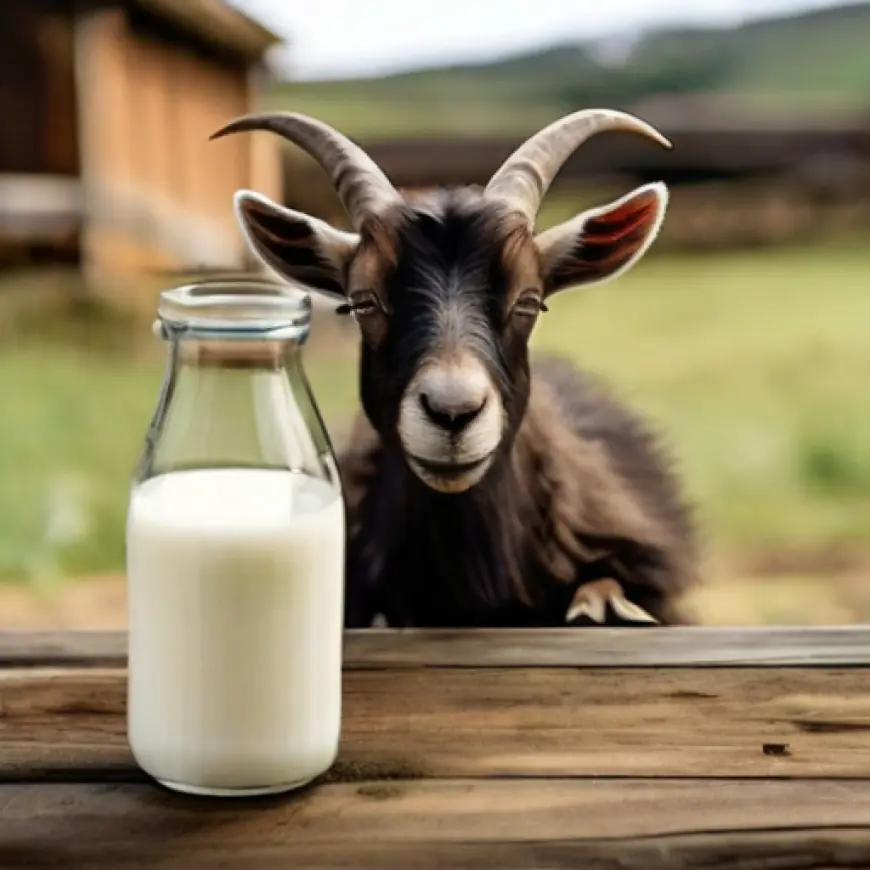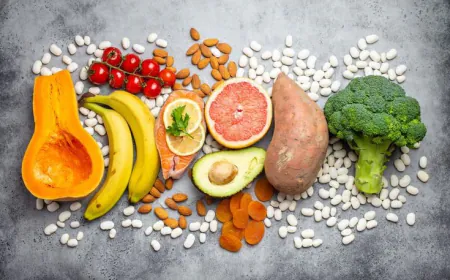Goat's Milk: A Healthy and Delicious Alternative
Goat's milk has many characteristics and advantages that make it a healthy and delicious alternative to cow's milk, especially for children Explore it

Goat's milk is one of the world's oldest and most widely consumed types. Various cultures and civilizations have used it for thousands of years, especially in regions where cow's milk was scarce or unavailable. Goat's milk has many characteristics and advantages, making it a healthy and delicious alternative to cow's milk, especially for children. In this article, we will explore the history, the benefits, and the suitability of Goat's milk for different groups of people.
History of the Use of Goat Milk
Goat's milk has a long and rich history that dates back to ancient times. According to some historians, Goat's milk was the first type consumed by humans as early as 10,000 years ago. As a source of nourishment and healing, Goat's milk was also mentioned in many ancient texts, such as the Bible, the Quran, and the Vedas. Goat's milk was also used to make cheese, butter, yogurt, other dairy products, soap, cosmetics, and medicines.
Goat's milk was popular in many regions, such as the Middle East, Africa, Asia, and Europe, where it was easier to raise goats than cows. Goats are more adaptable to harsh environments, such as mountains, deserts, and cold climates, and can feed on various plants and grasses. Goats also produce more milk per body weight unit than cows, requiring less space and resources. Some people also preferred Goat's milk for its taste, which is slightly sweeter and creamier than cow's milk.
Characteristics and Advantages of Goat Milk
Goat's milk has many characteristics and advantages, making it a healthy and delicious alternative to cow's milk. Some of the main ones are:
Easily digestible protein: Goat's milk contains smaller and softer casein micelles than cow's milk, which makes it easier to digest and less likely to cause bloating, gas, or stomach discomfort. Goat's milk also has a lower lactose content than cow's milk, making it suitable for lactose-intolerant or sensitive people.
Healthy fats: Goat's milk has a higher proportion of medium-chain fatty acids (MCFAs) than cow's milk, which benefits metabolism, the immune system, and cardiovascular health. Goat's milk also has a lower cholesterol content than cow's milk, which can help lower the risk of heart disease and stroke.
Prebiotics: Goat's milk contains oligosaccharides, complex sugars that act as prebiotics or food for the beneficial bacteria in the gut. Prebiotics can help improve the gut microbiome's digestion, immunity, and overall health.
Higher percentage of minerals (bioavailability): Goat's milk has a higher rate of minerals, such as calcium, magnesium, phosphorus, potassium, iron, and zinc, than cow's milk. Moreover, Goat's milk has a higher bioavailability of these minerals, which means they are more easily absorbed and utilized by the body. This can help prevent or treat mineral deficiencies, such as anemia, osteoporosis, and hypocalcemia.
Benefits for Children
Goat's milk is particularly beneficial for children, providing them with essential nutrients and supporting their growth and development. Some of the benefits of Goat's milk for children are:
Strong bones and teeth: Goat's milk is rich in calcium and phosphorus, which are vital for forming and maintaining strong bones and teeth. Goat's milk also has a higher bioavailability of these minerals, so the body uses them more effectively. Goat's milk can help prevent or treat conditions such as rickets, osteomalacia, and dental caries in children.

Healthy skin and hair: Goat's milk is rich in vitamin A and biotin, which are essential for the health and appearance of the skin and hair. Goat's milk can help prevent or treat skin problems, such as eczema, psoriasis, acne, and dryness, as well as hair problems, such as alopecia, dandruff, and brittleness, in children.
Enhanced immunity: Goat's milk is rich in immunoglobulins, antibodies that help fight off infections and diseases. Goat's milk also contains lactoferrin, a protein with antibacterial, antiviral, and anti-inflammatory properties. Goat's milk can help boost the immune system and protect children from common illnesses like colds, flu, diarrhea, and ear infections.
Improved cognition and mood: Goat's milk is rich in choline and tryptophan, essential for producing neurotransmitters, such as acetylcholine and serotonin, in the brain. These neurotransmitters are involved in the regulation of memory, learning, attention, and mood. Goat milk can help improve children's cognitive and emotional functions and well-being.

Suitability for All Children Except Injured Children Allergic to Cow's Milk Protein
Goat's milk is suitable for most children, except those with a specific allergy to Goat's milk protein or who are injured. Goat's milk protein is different from cow's milk protein, and most children who are allergic to cow's milk protein can tolerate Goat's milk without any adverse reactions. However, some children may have cross-reactivity to both cow's milk and goat's milk proteins and may experience symptoms such as hives, wheezing, vomiting, or anaphylaxis after consuming Goat's milk. Therefore, it is advisable to consult a doctor before introducing Goat's milk to children allergic to cow's milk protein.
Injured children may also need to avoid Goat's milk, which can interfere with healing. Goat's milk contains high levels of calcium, which can inhibit the absorption of iron, which is essential for the formation of red blood cells and the delivery of oxygen to the tissues. Goat's milk also contains high levels of phosphorus, which can affect the balance of calcium and phosphorus in the body and lead to calcification of soft tissues, such as muscles, tendons, and ligaments. Therefore, limiting or avoiding Goat's milk intake for injured children and supplementing with iron and vitamin C to enhance healing is advisable.
Conclusion
Goat's milk is one of the world's oldest and most widely consumed types. It has many characteristics and advantages make it a healthy and delicious alternative to cow's milk, especially for children. Goat's milk is easily digestible, has healthy fats, contains prebiotics, and has a higher percentage and bioavailability of minerals. Goat's milk can provide children with essential nutrients, support their growth and development, and health and well-being. Goat's milk is suitable for most children, except those with a specific allergy to Goat's milk protein or who are injured. Goat's milk can be enjoyed in its pure form or used to make various dairy products, such as cheese, butter, yogurt, and ice cream. Goat's milk is a beautiful natural gift that can enrich our lives and nourish our bodies and souls.
What's Your Reaction?



















































